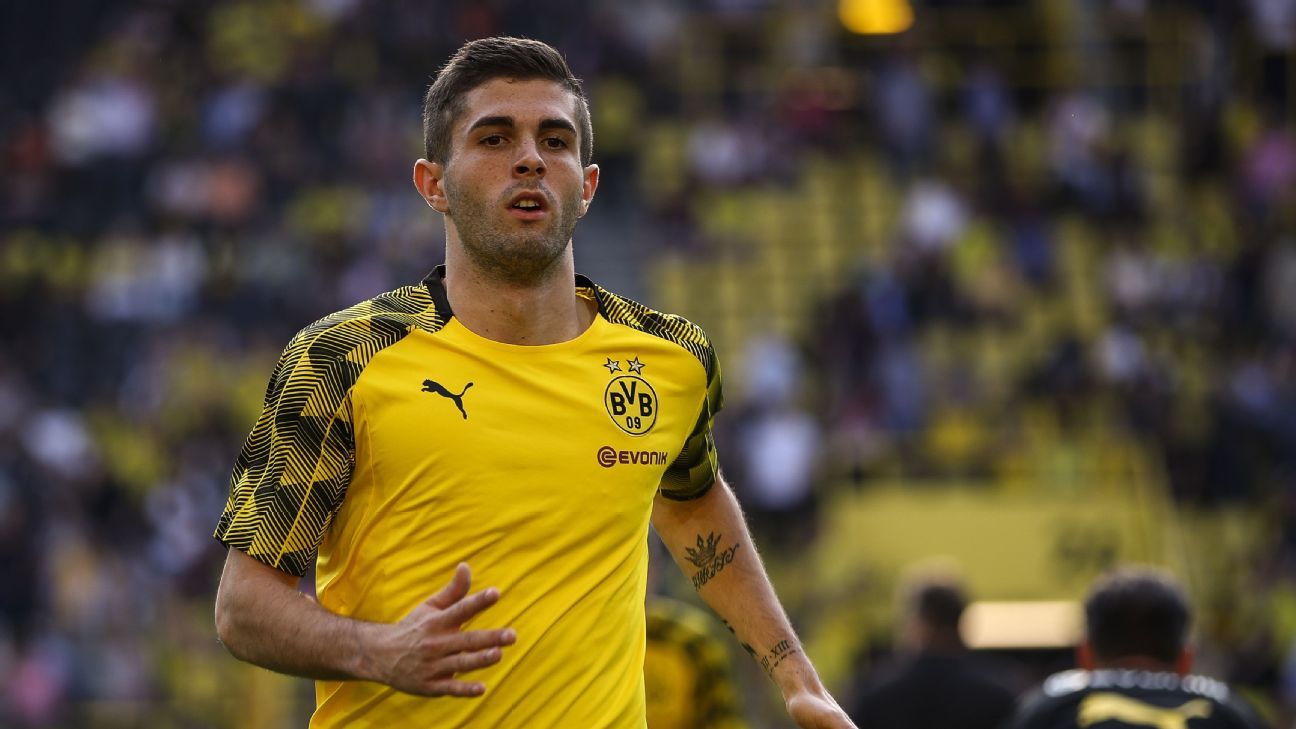

United States international Christian Pulisic and his Borussia Dortmund teammates testified on Wednesday at the trial of the man who admitted setting off three explosive devices as the team bus headed to a Champions League match in April 2017.
Pulisic was one of eight players to appear at Dortmund’s district court as a witness in the trial against the 29-year-old, who has been identified only as Sergej W. in keeping with German privacy law.
The forward appeared alongside teammates Roman Burki, Sokratis Papastathopoulos, Raphael Guerreiro, Shinji Kagawa, Nuri Sahin, Lukasz Piszczek and Julian Weigl.
“It was just a normal game,” Pulisic testified, recalling the hours before the first leg of the Champions League quarterfinal against Monaco at the Westfalenstadion.
“As soon as we left the hotel, I heard a loud bang. I didn’t know what it was at first. But Roman, who sat next to me, tried to drag me under the table.”
Defender Marc Bartra, who joined Real Betis shortly after testifying at the trial in January, required surgery on his right arm and remained sidelined for over a month.
“It all happened very fast,” Pulisic said. “I heard noise. There was a vibration. Marc was screaming and called for a doctor. All were yelling that the bus should drive on. I could not look at Marc because I can’t see blood.”
When asked about the mental impact of the attack, Pulisic said: “I had problems during the first weeks, yes. But now it’s much better.”
U.S. international Christian Pulisic at Dortmund’s district court on Wednesday, April 25. pic.twitter.com/Cn4XDhKEfl
— DID (@DID_Sport) April 25, 2018
Rainer Schrey, the club’s former athletics coach, testified that he “expected armed men to storm the bus,” and Guerreiro and Papastathopoulos both said they thought they were being shot at.
“I was in fear when getting into the team bus, I was in fear when getting into my own car, and I was in fear when just walking on the street,” midfielder Shinji Kagawa said, speaking about the weeks following the attack.
And Burki admitted he is still “easily startled,” especially when somebody drops things.
“And after that, I am angry,” Burki said.
Shrapnel from the bombs, each filled with 60 metal pins, were not only found in the headrest of Bartra’s seat but also in houses close to the scene.
The suspect, charged with 28 counts of attempted murder, has claimed he did not want to injure anyone but rather create a “terror scenario” that would lead to a drop in the valuation of Dortmund’s shares from which he hoped to profit.
Dortmund are the only German club to be listed on the stock market. The suspect claimed he was inspired by movements on the stock market following the terror attacks on Paris on Nov. 13, 2015.
Some Dortmund players have said that they have yet to get over the attack, with Weidenfeller, 37, admitting he still needs psychological help.
Matthias Ginter, who joined Borussia Monchengladbach last summer, testified on April 18 that he considered retiring from football after becoming a target of an attack for a second time. The Germany international was in Paris for the game against France during the terror attacks in 2015, with a series of blasts targeting the Stade de France.
If convicted, the suspect could face a life sentence. The trial is currently scheduled to end in June.
Stephan Uersfeld is the Germany correspondent for ESPN FC. Follow him on Twitter @uersfeld.

Be the first to comment